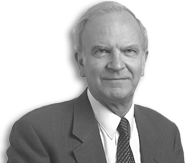biography
Born in Kettering in1936, Brian Newbould was educated at Gravesend Grammar School, from where he won a Merchant Venturers' Open Scholarship to the University of Bristol. There he conducted four operas, including The Bartered Bride, and composed and directed music for three revues at his hall of residence. After graduation he was appointed to the Royal Scottish Academy of Music as teacher of harmony and keyboard harmony (1960-5). Following a period as Lecturer in Music at the University of Leeds (1965-79) he was offered the Chair of Music at the University of Hull, from which he retired in 2001.
It was his HoD at Leeds, Ian Kemp, who suggested that he might look at Schubert's sketch for a Symphony in No.7 in E, D.729, with a view to completing it for a student premiere to mark the 150th anniversary of the composer's death (1978). Five months after that premiere, the BBC Symphony Orchestra with David Atherton played his "realisation" at the final concert of the Cheltenham International Festival. Encouraged by Ian Kemp again, and after enthusiastic reviews of No.7, Newbould then tackled Schubert's piano sketches for a final symphony (D.936a), subsequently known as "the Tenth", which had recently been identified.
Philips were embarking on a complete recording of the Schubert symphonies, to include Newbould's versions of Nos.7 and 10, with Neville Marriner and the Academy of St. Martin-in-the-Fields, and asked him to complete also No.8, the "Unfinished" B minor Symphony. They would also include his orchestration of piano-sketched fragments of Symphonies D.615 and D.708a, which were originally made to illustrate three talks he gave on BBC Radio 3.
Commissions for further completions, as well as books on Schubert, followed, as did sponsored visit overseas. A visit to Santiago de Chile to give talks and attend the Chilean premiere of the Tenth Symphony was sponsored by NCR. The British Council sponsored a visit to Rio de Janeiro to give talks and conduct the Brazilian premiere of the Tenth Symphony. The Austrian Institute (now Austrian Cultural Forum) supported a stay in Finland to give two lectures with live illustrations by the Jyväskylä Sinfonia and give a pre-concert talk when the same orchestra gave Finnish premieres of the Seventh and Tenth Symphonies. Newbould's edition of the 31-bar fragment of a symphony "No. 0" (D.2b) begun by Schubert at the age of 14 (1811) received its first concert performance on the same occasion.
Far from being a one-composer specialist, Newbould has discovered technical feats on the part of Brahms, Elgar, Mozart and Ravel that were previously unremarked. His explanation as to why Ravel adopted the title "Pantoum" for the scherzo of his Piano Trio was described as "ground-breaking" by Roger Nichols. His discovery of a full orchestral palindrome in Schubert's Die Zauberharfe - the only known example in 19th-century music - appears to have unearthed a secret that died with the composer. Other examples of mirror-forms were found in other Schubert scores.
Beyond academe Brian Newbould shared his enthusiasm with audiences around the country. Since retirement he has given monthly presentations for local U3A groups and frequent pre-concert talks for Leeds International Orchestral Series and other promoters. He was appointed special adviser to BBC Radio 3 for its Schubert celebration in 2012.
His orchestral suite adapted from the unstageable Schubert opera Die Zauberharfe ("The Magic Harp") was given its world premiere in Vienna in 2019 by the Junge Philharmonie Wien conducted by Michael Lessky.
In Schubert's Workshop the author offers a close examination of aspects of the composer's compositional technique, examining the nature and function of "technical devices" and offering a fresh attempt to trace the Schubert legacy in the work of later composers. Several chapters are devoted to the methodology of completing or "realising" works left unfinished, with some reference to the performance history of the earlier completions.

